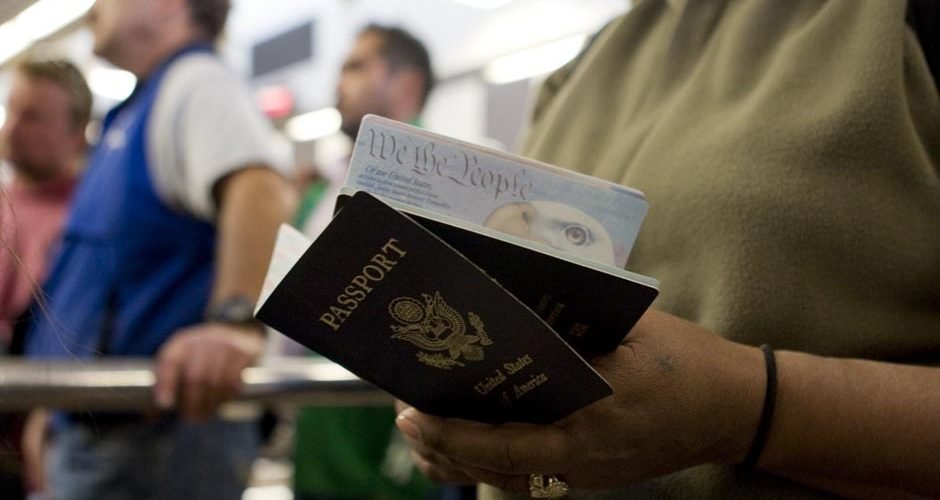Borders divide our nations and are not merely lines on a map. They hold immense significance – from defining the limits of sovereign nations to protecting their interests and cultures – borders symbolise identity and security, enabling countries to safeguard their citizens and resources.
Deeply rooted in history and geopolitics, the passport and border system reflects the complex relationships between nations, influenced by treaties and alliances. In an age of instant communication and global challenges like climate change, the recent updates and developments of this system raise questions about its relevance, relatability, and fairness.
The existence of borders and passports continues and will continue to shape our lives in profound ways. These seemingly bureaucratic elements wield immense power, determining where we can live, work, and even who we are. But why do borders and passports dictate what country we get to call home?
Let’s delve into their importance and the impact of their systems.
Table of Contents
Need for the Passport System
Passports play a great role in enabling us to explore territories and connect with the world. These coloured booklets not only identify us but also symbolise our loyalty to our respective nations. They can also bestow privileges, allowing some people to visit countries without visas while others encounter bureaucratic obstacles.
Borders and passports are fundamental for upholding order, security and cultural identity. They help prevent conflicts and safeguard interests. However, their inflexible nature can impede progress. Restrict the possibilities for individuals and nations. Striking a balance between security and openness is key to comprehending the significance of borders and passports.
While acknowledging the importance of borders and passports, it is imperative to consider fostering inclusivity and promoting understanding in our interconnected society.
Policies and Regulations
Passports play a role, as travel documents grant individuals access to countries and serve as proof of their citizenship and identity. However, it’s important to note that the policies and regulations surrounding passports can differ significantly from one country to another. In this article, we will explore the guidelines for passports in selected nations, specifically Antigua & Barbuda, Grenada, St. Lucia, Greece, Malta, the United Kingdom and Portugal.
Antigua & Barbuda, Grenada and St. Lucia
In the region, passport policies generally align with standards. To obtain the Antigua and Barbuda citizenship by investment, Grenada and St. Lucia have the option to apply for for 5 or 10-year passports, depending on the country, that can be easily renewed when necessary. Although there might be variations in passport fees, application requirements and processing times among these countries, rest assured that such information is readily available and transparent for access.
Greece, Malta, the UK and Portugal
European countries have well-established passport policies, although they differ from one nation to another.
Greece: Here, biometric passports can be applied with a validity of 10 years. Special provisions exist for minors; additional documents may be required in certain circumstances.
Greek passports incorporate various security features to prevent counterfeiting and fraud. These may include holographic images, UV ink, and other advanced printing techniques.
Malta: Its passport ranks highly for global mobility, granting visa-free or visa-on-arrival access to numerous countries. Malta also provides a fast-track service for expedited processing, making it an attractive choice for travellers seeking a quick and efficient passport application process.
Maltese biometric passports are valid for 10 years (adults). Minors need to be renewed every 5 years.
United Kingdom: These globally recognised, one of the most sought after passports in the entire globe come in the standard 10-year validity as well. In the post-Brexit era, travellers are advised to check entry requirements in travel regulations when visiting European Union countries. Regular updates from the UK government provide essential information for travellers to stay informed about the latest passport-related policies.
Portugal: Portugal ranks 6th in the overall world ranking in visa-free travel, which means it gives you the key to 180+ countries around the world. They are valid for 5 years. Special passport types are available for children, diplomats, and others.
It’s important to note that passport regulations can change, and additional travel restrictions may apply due to factors like the COVID-19 pandemic or geopolitical developments. Therefore, travellers should always consult the official government websites or contact relevant authorities before making travel plans to ensure they are in compliance with the most current policies and regulations regarding passports for their chosen destinations.
What Does the Future Look Like for Passports?
As we look to the future, several trends are shaping the evolution of passports worldwide. To gain insights into this, let’s examine the general policies and regulations concerning passports in select Caribbean and European countries, including Antigua & Barbuda, Grenada, St. Lucia, Greece, Malta, the United Kingdom, and Portugal
In the Caribbean, there is a growing trend towards using e-passports that have microchips with information. This makes immigration processes faster and more efficient. These nations are also actively considering agreements for visa travel and economic citizenship programs, which would allow people to obtain passports through investments, thus boosting their economies.
European countries are leading the way when it comes to passport innovation. Greece, Malta and Portugal have already embraced biometric passport technologies. These countries are part of the European Union’s efforts to standardise travel documents, making entry procedures smoother for their citizens within the Schengen Area.
Despite leaving the EU, the United Kingdom continues to issue passports recognised worldwide. In the future, these countries may explore passports and blockchain technology as means of identity verification and simplified international travel.
The future of passports is increasingly digital, with possibilities like biometric authentication, mobile passport apps, and enhanced security features. As global mobility continues to evolve, passports will remain essential, adapting to meet the changing needs of travellers in an interconnected world.
Navigating Borders and Passports: Redefining Home
Planning to obtain a passport for yourself in one of these above-mentioned countries, or even any other country on both continents? Getting in touch with a veteran citizenship expert professional is highly suggested to finalise your decision.
From recent trend changes in passport systems to future prospects of different nations, we assist you in gaining genuine insights about the intricacies and advantages of different countries’ passports and providing suggestions about the most favourable nation from the list of your potential nations.





